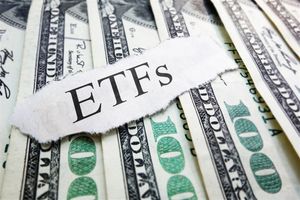
Banking services provider Coastal Financial (NASDAQ: CCB) reported revenue ahead of Wall Streets expectations in Q3 CY2025, with sales up 25.6% year on year to $144.7 million. Its GAAP profit of $0.88 per share was in line with analysts’ consensus estimates.
Is now the time to buy Coastal Financial? Find out by accessing our full research report, it’s free for active Edge members.
Coastal Financial (CCB) Q3 CY2025 Highlights:
- Net Interest Income: $77.9 million vs analyst estimates of $79.84 million (7.9% year-on-year growth, 2.4% miss)
- Net Interest Margin: 7% vs analyst estimates of 7.1% (11.2 basis point miss)
- Revenue: $144.7 million vs analyst estimates of $141.8 million (25.6% year-on-year growth, 2% beat)
- Efficiency Ratio: 48.5% vs analyst estimates of 55.5% (697.5 basis point beat)
- EPS (GAAP): $0.88 vs analyst estimates of $0.87 (in line)
- Tangible Book Value per Share: $31.45 vs analyst estimates of $31.37 (28.3% year-on-year growth, in line)
- Market Capitalization: $1.58 billion
"During the third quarter of 2025, loans receivable increased by $163.5 million, representing a 4.6% rise, alongside another period of solid deposit growth totaling $59.0 million, or 1.5%,” stated CEO Eric Sprink.
Company Overview
Pioneering the intersection of traditional banking and financial technology in the Pacific Northwest, Coastal Financial (NASDAQ: CCB) operates as a bank holding company that provides traditional banking services and Banking-as-a-Service (BaaS) solutions to consumers and businesses.
Sales Growth
In general, banks make money from two primary sources. The first is net interest income, which is interest earned on loans, mortgages, and investments in securities minus interest paid out on deposits. The second source is non-interest income, which can come from bank account, credit card, wealth management, investing banking, and trading fees. Luckily, Coastal Financial’s revenue grew at an incredible 49.7% compounded annual growth rate over the last five years. Its growth surpassed the average banking company and shows its offerings resonate with customers, a great starting point for our analysis.
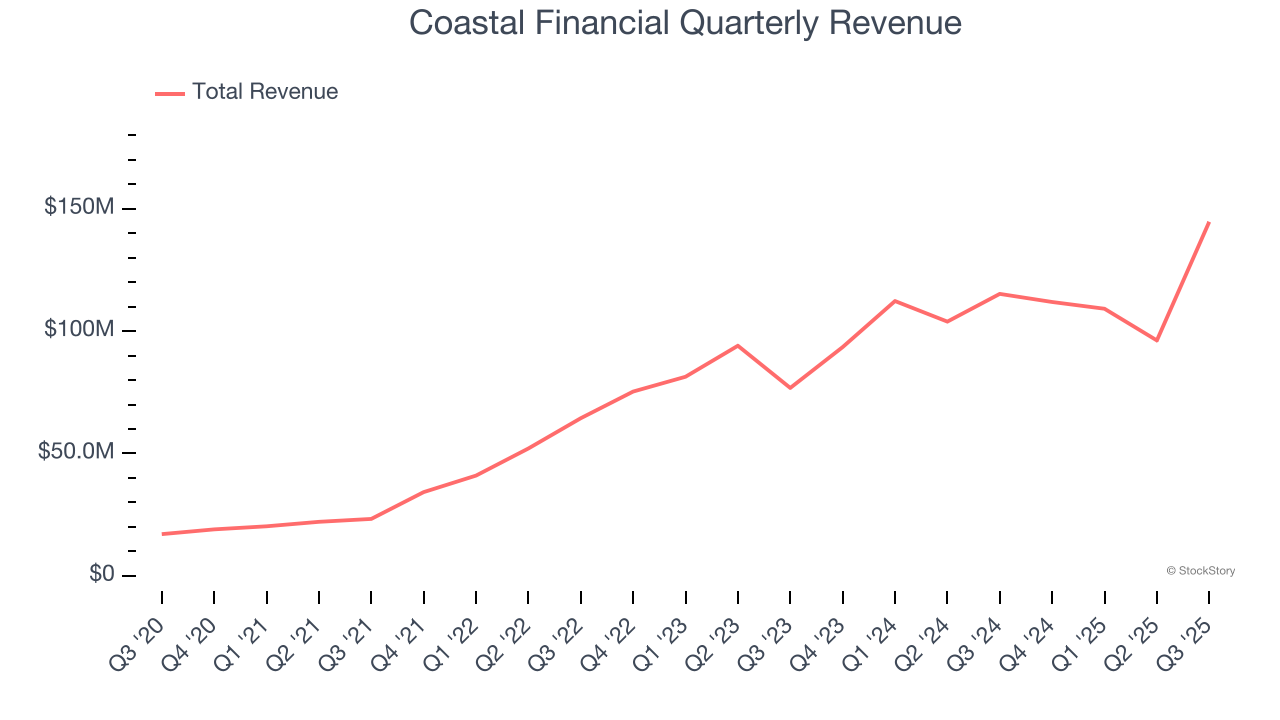
We at StockStory place the most emphasis on long-term growth, but within financials, a half-decade historical view may miss recent interest rate changes, market returns, and industry trends. Coastal Financial’s annualized revenue growth of 18.8% over the last two years is below its five-year trend, but we still think the results suggest healthy demand. 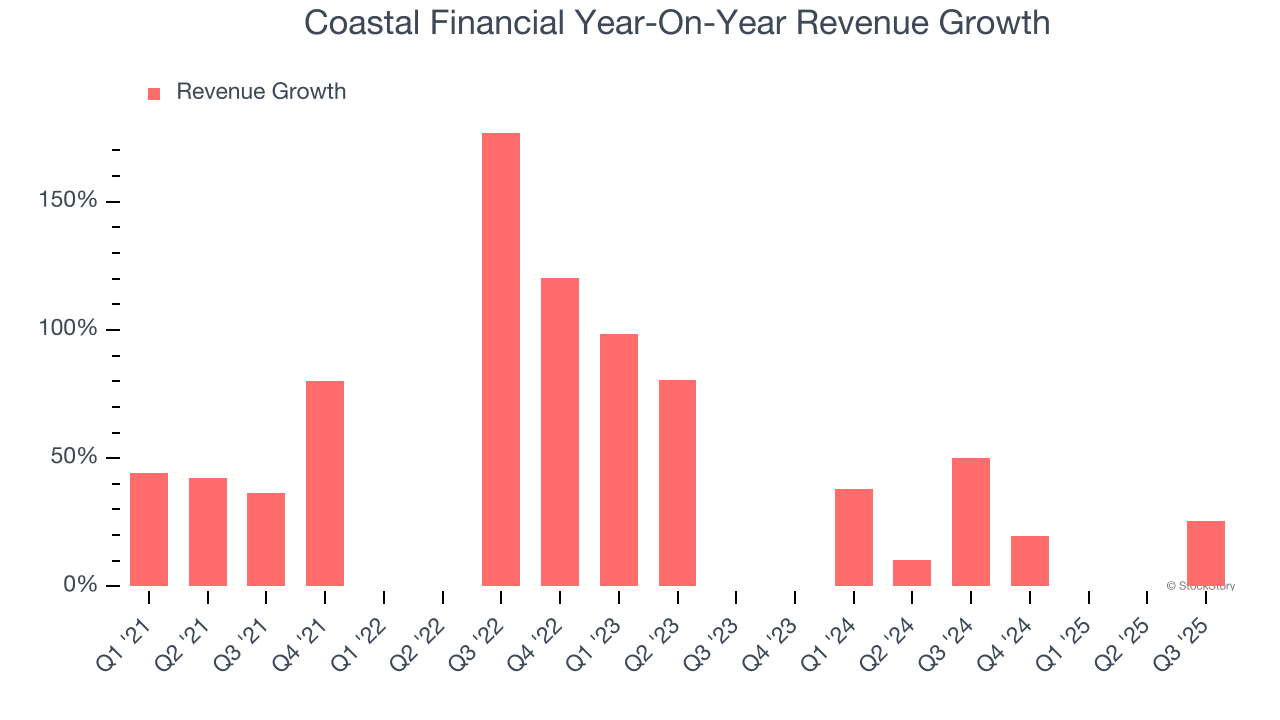 Note: Quarters not shown were determined to be outliers, impacted by outsized investment gains/losses that are not indicative of the recurring fundamentals of the business.
Note: Quarters not shown were determined to be outliers, impacted by outsized investment gains/losses that are not indicative of the recurring fundamentals of the business.
This quarter, Coastal Financial reported robust year-on-year revenue growth of 25.6%, and its $144.7 million of revenue topped Wall Street estimates by 2%.
Net interest income made up 71.5% of the company’s total revenue during the last five years, meaning lending operations are Coastal Financial’s largest source of revenue.
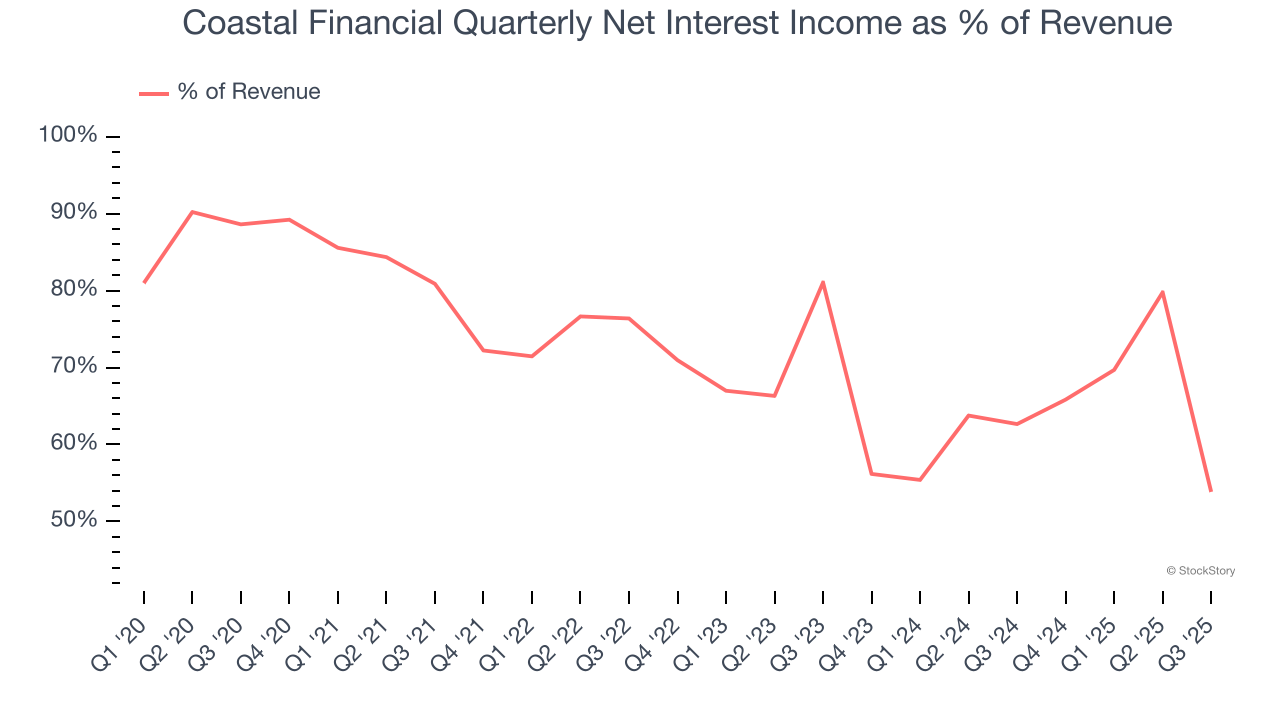
Net interest income commands greater market attention due to its reliability and consistency, whereas non-interest income is often seen as lower-quality revenue that lacks the same dependable characteristics.
Here at StockStory, we certainly understand the potential of thematic investing. Diverse winners from Microsoft (MSFT) to Alphabet (GOOG), Coca-Cola (KO) to Monster Beverage (MNST) could all have been identified as promising growth stories with a megatrend driving the growth. So, in that spirit, we’ve identified a relatively under-the-radar profitable growth stock benefiting from the rise of AI, available to you FREE via this link.
Tangible Book Value Per Share (TBVPS)
Banks profit by intermediating between depositors and borrowers, making them fundamentally balance sheet-driven enterprises. Market participants emphasize balance sheet quality and sustained book value growth when evaluating these institutions.
This explains why tangible book value per share (TBVPS) stands as the premier banking metric. TBVPS strips away questionable intangible assets, revealing concrete per-share net worth that investors can trust. EPS can become murky due to acquisition impacts or accounting flexibility around loan provisions, and TBVPS resists financial engineering manipulation.
Coastal Financial’s TBVPS grew at an incredible 22.6% annual clip over the last five years. TBVPS growth has recently decelerated a bit to 21.3% annual growth over the last two years (from $21.38 to $31.45 per share).
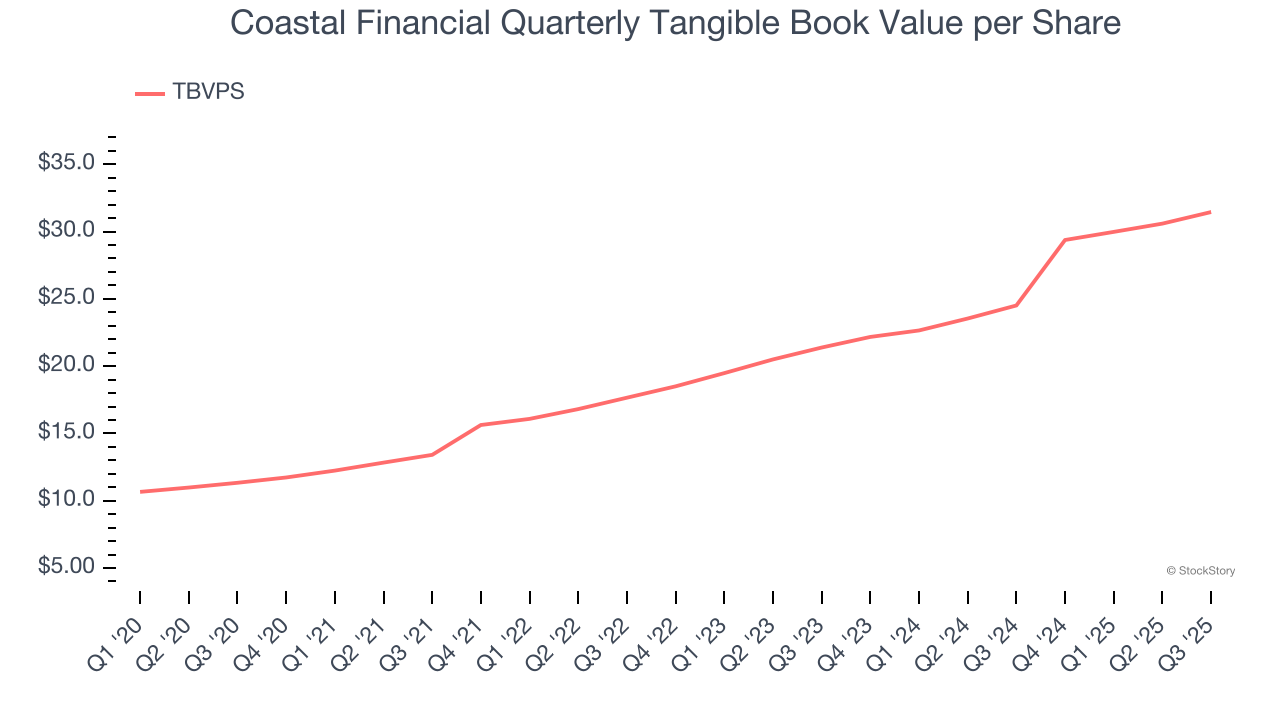
Over the next 12 months, Consensus estimates call for Coastal Financial’s TBVPS to grow by 16.6% to $36.66, elite growth rate.
Key Takeaways from Coastal Financial’s Q3 Results
It was encouraging to see Coastal Financial beat analysts’ revenue and efficiency ratio expectations this quarter. On the other hand, its net interest income and net interest margin Wall Street’s estimates. Overall, this was a weaker quarter. The stock remained flat at $105.16 immediately after reporting.
Coastal Financial’s earnings report left more to be desired. Let’s look forward to see if this quarter has created an opportunity to buy the stock. If you’re making that decision, you should consider the bigger picture of valuation, business qualities, as well as the latest earnings. We cover that in our actionable full research report which you can read here, it’s free for active Edge members.


